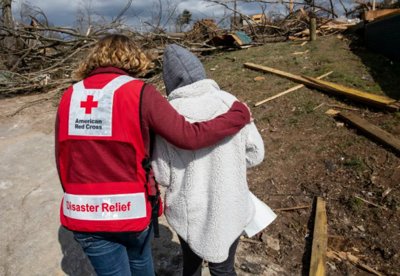
The stress that follows a disaster doesn’t fade just because the immediate danger has passed. The aftermath often brings ongoing mental and physical strain that lingers for weeks or even months, quietly affecting sleep, energy, and focus. People may find themselves tense, foggy, and overwhelmed by uncertainty.
Recovery isn’t just about repairing buildings—it’s about healing the body and mind. Natural remedies offer gentle support during this time. Small, grounded practices can help restore clarity, rebuild daily rhythms, and bring a little peace when everything feels unsteady.
Herbal Interventions That Calm Nerves After Trauma
Chamomile and lemon balm are both known for helping people relax. Drinking chamomile tea can calm the mind and make it easier to fall asleep. Lemon balm has a light, pleasant taste and works well at the end of a stressful day. These herbs help lower cortisol, the stress hormone, and create a more peaceful mood.
Ashwagandha is another helpful option. This adaptogen supports the adrenal system and improves the body’s response to ongoing stress, especially when paired with calming routines. For those managing recovery after a major storm—juggling paperwork, insurance delays, and rebuilding—letting a hurricane damage lawyer do most of the tedious work can relieve some of the mental burden. Combining emotional care with practical legal support gives the body and mind a better chance to heal.
Mineral Support for Physical and Mental Decompression
After a disaster, both the body and mind can feel tense and worn out. Magnesium plays a key part in recovery. It helps muscles relax and reduces the tightness that often comes with stress. You can apply magnesium oil directly to sore muscles for relief. Epsom salt baths are another option. They help release both physical and mental tension, offering a break in the middle of a tough time.
Sleep problems are common after disasters. Magnesium glycinate supplements are gentle and may help reset sleep cycles. Taking them before bed, along with a calming herbal tea, can support better sleep. A consistent bedtime routine helps the body relax and get the rest it needs.
Breathing Exercises to Stop the Stress Cycle
Breathing exercises offer an easy way to feel more in control during anxious moments. Box breathing is one option—it involves slowly inhaling, holding, exhaling, and holding again, all for equal counts. Repeating that pattern helps calm racing thoughts and settle nervous energy. Practicing box breathing a few times a day can build greater resistance to everyday stress.
Physiological sighs are another helpful trick. Taking a deep breath in and releasing it with a longer exhale creates a quick sense of relief when emotions run high. Morning breath-holds may also help reset the body's rhythms. Including simple techniques like these throughout the day can offer moments of calm and balance.
Grounding Practices to Recover from Environmental Shock
Being in nature helps people recover from emotional stress. Walking barefoot on grass or soil connects you to the earth and can make you feel more stable. This sensory experience can calm the mind and help release tension built up in the body.
Some simple exercises also help. Squats or balance holds bring awareness back to the body and help you feel stronger. Even a clay foot mask can be healing. It detoxifies and soothes tired feet, offering a gentle form of self-care. Doing these things regularly can help people feel more grounded during tough times.
Natural Ways to Support the Immune System Under Stress
When stress levels remain high, the immune system often becomes more vulnerable, making full recovery more difficult. Mushroom supplements such as reishi and cordyceps are known to support immune strength and improve energy. Consistent use of reishi and cordyceps may help the body remain resilient during periods of added strain.
During recovery, nutrient deficiencies can go unnoticed. Limited exposure to sunlight may lead to low vitamin D levels, along with other essential nutrients. Consulting a naturopath can provide guidance on what the body may be lacking. A personalized plan that includes whole foods and targeted supplements can support improved energy and a more balanced mood.
Stress doesn’t just disappear after a disaster—it sticks around in your body and mind. That’s why small daily habits matter. Chamomile and lemon balm teas help you relax and sleep better. Ashwagandha can clear brain fog and help you handle stress. Magnesium calms sore muscles and supports deeper sleep. Easy breathing exercises, like box breathing or long exhales, bring quick relief. Walking barefoot or doing simple movements can help you feel more grounded. Reishi mushrooms and vitamin D support your immune system. Try adding just one of these into your routine—you’ll likely feel a little calmer, clearer, and more steady.





(0) comments
We welcome your comments
Log In
Post a comment as Guest
Keep it Clean. Please avoid obscene, vulgar, lewd, racist or sexually-oriented language.
PLEASE TURN OFF YOUR CAPS LOCK.
Don't Threaten. Threats of harming another person will not be tolerated.
Be Truthful. Don't knowingly lie about anyone or anything.
Be Nice. No racism, sexism or any sort of -ism that is degrading to another person.
Be Proactive. Use the 'Report' link on each comment to let us know of abusive posts.
Share with Us. We'd love to hear eyewitness accounts, the history behind an article.